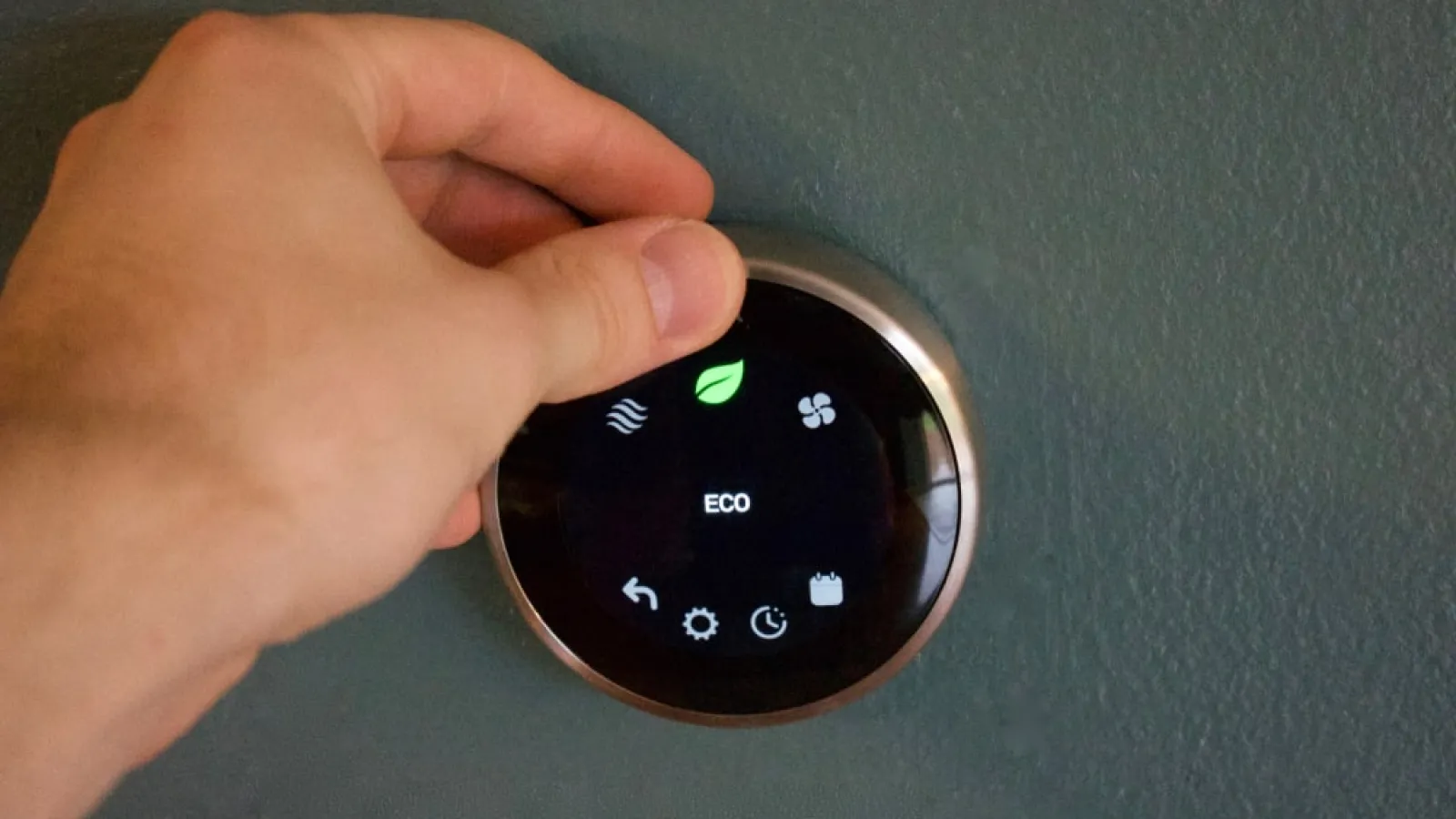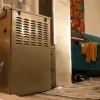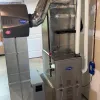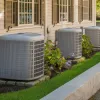Everybody wants to pay less to cool their home during the summer. But what is the most efficient AC temperature? Is one thermostat setting better than the rest?
A snarky HVAC technician might say, "Yeah. The most efficient temperature is 'off.'"
In other words, the way to pay the least for air conditioning is to, you know, not use it.
But that's not what you want to know! You're wondering if there's a strategic way to set your thermostat (a "golden" temperature setting, say) that's going to save you the most money.
You might be thinking of how a car is most efficient around 55 miles per hour. If there's a most efficient speed for a car, you reason, there's got to be a most efficient temperature for an AC, right?
Well, not exactly.
The reality is that air conditioners and automobiles are not analogous in this way. To determine the most efficient AC temperature for you, you've got to ask this question:
How high are you willing to go?
Another way of asking this is, "How high are you willing to set the thermostat when it's 90+ degrees outside?"
Because the most efficient AC temperature is always the highest one you're willing to tolerate.
The lower you set the thermostat, the more your air conditioner will run. And the more it runs, the more energy it uses.
If you're able to stay comfortable at 77 degrees, you will have a more efficient AC than someone who, all else being equal, sets hers to 72 degrees. It's really that simple.
Georgia Power recommends a summertime thermostat setting of 78 degrees for a great combination of indoor comfort and energy savings.
Ways to make your AC more efficient
Ok, so you just need to raise the temperature setting to something you can live with. Case closed, right?
Actually, there's more you can do.
Aside from buying a more efficient air conditioner, which we'll get to in just a moment, there are three things you can do to improve the efficiency of the AC you already have:
1. Keep the coil clean
A dirty outdoor coil will struggle with heat transfer. The result is an AC that runs longer and more often to lower the temperature in your home.
In other words, dirty outdoor AC units are less efficient than clean ones.
Luckily, regular air conditioner tune-ups can rescue you from this terrible situation! During routine maintenance visits, our HVAC technicians clean the outdoor coil. This simple task enhances AC performance, efficiency, and longevity.
2. Lower the fan speed
Most air conditioners are set to move air at a rate of 400 cubic feet per minute (CFM)., which is totally acceptable in many environments. But we live in Atlanta, where summers are super humid in addition to being super hot.
By lowering the AC fan speed to 350 CFM, you can improve the air conditioner's ability to remove humidity from your home. Lower humidity results in better comfort at higher temperatures. The result? You might not have to set the thermostat so low.
And a higher thermostat setting means better AC efficiency.
3. Install a thermal expansion valve, or TXV
A while back, we published an article about ways to help your AC remove more humidity from your home. Check that out for a detailed overview of how a thermal expansion valve (TXV) works.
The abridged explanation is that many air conditioning systems underutilize the evaporator coil, which is the coil that resides in the indoor part of your AC. By installing a TXV, you allow the AC to use all of the coil, improving the system's capacity to remove heat and humidity from your home.
This means that any given AC cycle is more effective than before you installed the TXV, resulting in better efficiency.
Upgrades that result in lower cooling bills
Aside from AC maintenance and tweaks, another way to cool your home more efficiently is to replace your old system with something more efficient.
Or, if you keep your thermostat below 75 as part of an ongoing battle with humidity, you might end up using your AC less by installing a whole-house dehumidifier.
Let's consider both approaches.
Getting a more efficient air conditioner
One approach to improving AC efficiency is to upgrade from a standard AC to a two-stage or variable speed model.
Variable speed air conditioners, in particular, are significantly more efficient than basic AC units.
To understand why, consider how a standard air conditioner works. You set your thermostat to a certain temperature. Let's say 75 degrees. When the indoor temperature exceeds 75 degrees, the AC turns on from idle, runs at full capacity, lowers the temperature to 75 and then turns off.
Compare that to a variable speed AC, which runs at a low level pretty much all the time. When the indoor temperature rises above 75 degrees, the AC gently ramps up to a slightly higher speed to bring the temperature back down. When it's 75 degrees again, the system returns to a lower speed, but never turns all the way off.
This is more efficient than a standard AC because:
- Turning on and off from idle requires a lot more energy than running consistently.
- Running at full capacity uses a lot more energy than running at low speeds
- Near-constant runtimes result in lower indoor humidity, which means you might feel comfortable at higher thermostat settings. A standard AC, by contrast, doesn't run for a lot of the day. This allows humidity to rise inside the home.
So if it's time to replace your air conditioner and you're keen on having an efficient system, variable speed models are the way to go.
Note: Whether you have a standard AC or a variable speed model, it's essential for your air conditioner to be properly sized for your home. In our area, many ACs are oversized, resulting in poor efficiency, poor humidity management, and shorter system lifespans. Be sure your AC contractor performs a Manual J load calculation prior to selecting any new HVAC equipment!
Getting a whole-house dehumidifier
Since many people keep their thermostats set to very low temperatures in an effort to keep humidity at bay, a whole-house dehumidifier can be a good solution for improving AC efficiency.
Whole-house dehumidifiers interface with your existing air ducts and your air conditioning system. Basically, they pick up the slack for an AC that struggles to remove enough humidity.
They also run during the spring and fall when you're not using your air conditioner, so your home is always dry and comfortable.
Keep in mind that while a whole-house dehumidifier might allow you to comfortably raise the temperature on your thermostat, it's a separate device that also uses energy.
While it can technically allow you to run your AC more efficiently, you might not actually have a lower energy bill after installing one.
Speaking of installation, be sure you hire a contractor who knows how to install a whole-house dehumidifier. Not everyone does it the same way, and some installations are way more effective than others!
Conclusion: There is no single most efficient AC temperature
But there definitely are ways to improve AC efficiency!
We hope these tips and strategies can help you use less energy while staying comfortable during the summer.
If you live in Metro Atlanta and have questions about making your AC more efficient or want to discuss a replacement air conditioner, PV Heating, Cooling & Plumbing can help! We'll listen to your concerns and point you to the best possible solution.
Give us a call today at (404) 798-9672 or schedule an appointment online!





